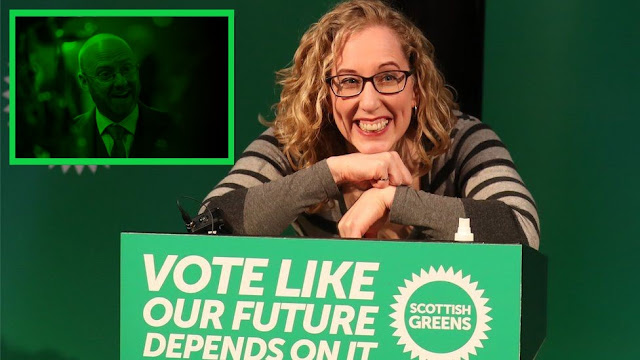SNP WIN ELECTION | 72 SEAT INDEPENDENCE MAJORITY
Nicola Sturgeon has hailed the SNP's "historic and extraordinary" fourth consecutive victory in the Scottish Parliament election.
Only the pro independence parties won more seats this term, with Unionists seeing a decline in support for them which reflects their numbers in the chamber.
Ms Sturgeon said her immediate priority was the pandemic but still intends holding a referendum once the crisis has passed.
Boris Johnson has responded by inviting the devolved nations to a Covid recovery summit.
Ms Sturgeon said there was no democratic justification for the Tory leader or anyone else, in attempting to block or frustrate the Scottish electorate's democratic instructions.
But Mr Johnson said talk of "ripping our country apart" would be "irresponsible and reckless".
In Scotland the SNP won 64 seats, the Green Party 8, the Conservatives 31, Labour 22, and Liberal Democrats 4, with the latter losing their deposit in around 50 constituency seats across the country.
By comparison, Ms Sturgeon's party had won the most constituency seats and secured the highest share of the constituency vote in the parliament's history.
And she pledged that "the task of building a better Scotland for everyone who lives here will be my priority every single day."
The First Minister said her focus in government is now on leading the country through the pandemic and keeping people safe.
She added: "It is then to kick-start and drive our recovery with an ambitious and transformative programme for government.
"And, Yes, when the crisis has passed, it is to give people in Scotland a detailed and current prospectus and allow them to choose a new future.
"All of that is what we promised and all of that is what we intend to deliver."
She said the result of the election meant there was "no democratic justification whatsoever for Boris Johnson or anyone else seeking to block the right of the people of Scotland to choose our future."
And she insisted that holding a referendum was now "the will of the country".
 |
| FEART: The Tory leader is widely seen as being feart of running another indyref with pro indy parties in the ascendancy in parliament |
Boris Johnson congratulated Ms Sturgeon and Welsh First Minister Mark Drakeford on their re-elections and invited them to a meeting "to discuss our shared challenges and how we can work together in the years to overcome them".
He phoned Mr Drakeford on Saturday and plans to speak to Ms Sturgeon today.
In a letter to Ms Sturgeon published on Saturday night, he invited her to "discuss our shared challenges", adding "we will not always agree - but I am confident... we will be able to build back better, in the interests of the people we serve."
Mr Johnson said the country needed to "show the same spirit of unity and co-operation that marked our fight against the pandemic" in engineering a Covid-19 recovery.
But he warned it would be a "difficult journey", adding: "The broad shoulders of the UK have supported jobs and businesses the length and breadth of the country, but we know that economic recovery will be a serious shared responsibility."
Prior to the Holyrood election's final results, Mr Johnson wrote in Saturday's Daily Telegraph that it would be "irresponsible and reckless" to talk about "ripping our country apart" with an independence referendum at a time when people wanted to recover from the coronavirus crisis.
The Scottish voting system was specifically designed to prevent any one party from having a majority in the 129-seat parliament - although the SNP did manage to fluke it with a much lower share of the vote in 2011.
Ms Sturgeon's party, which formed a minority government after the last election in 2016, had hoped that winning another majority in this election would further strengthen its calls for a second referendum on Scottish independence.
It would also have allowed the party to pass laws and the government's annual budget without having to rely on the support of any other party.
But there will be another, increased, pro-independence majority in the parliament thanks to the seats allocated to the Scottish Greens through the regional list system and the additional seat won by the SNP.
It is worth pointing out that it is this system that all Unionist parties owe over 80% of their seats to, having only managed to win 19% of constituency seats between all three parties in the FPTP half of the election.
If Scotland ran the same voting system as the rest of the UK, then there would be 61 SNP MSPs, 5 Tories, 4 Lib Dems and 2 Labour. The Greens won no FPTP seats, despite running in a number of constituencies, but did bag 8 MSPs on the regional list.
The other pro independence party, Alba, did not get anywhere near enough support to win a list seat, but their leader, former First Minister Alex Salmond, insisted that it was primarily due to time, or the lack of it, that was one of the main factors in determining this, time and the media, who he accused of not giving him enough exposure that he said was required in order to make a mark in this election.
And some of the exposure he was given was deemed by him to have been the wrong type of exposure, with the fallout from his recent criminal trial and subsequent attacks on the First Minister and leaders of various other national institutions, still dominating the narrative.

















No comments